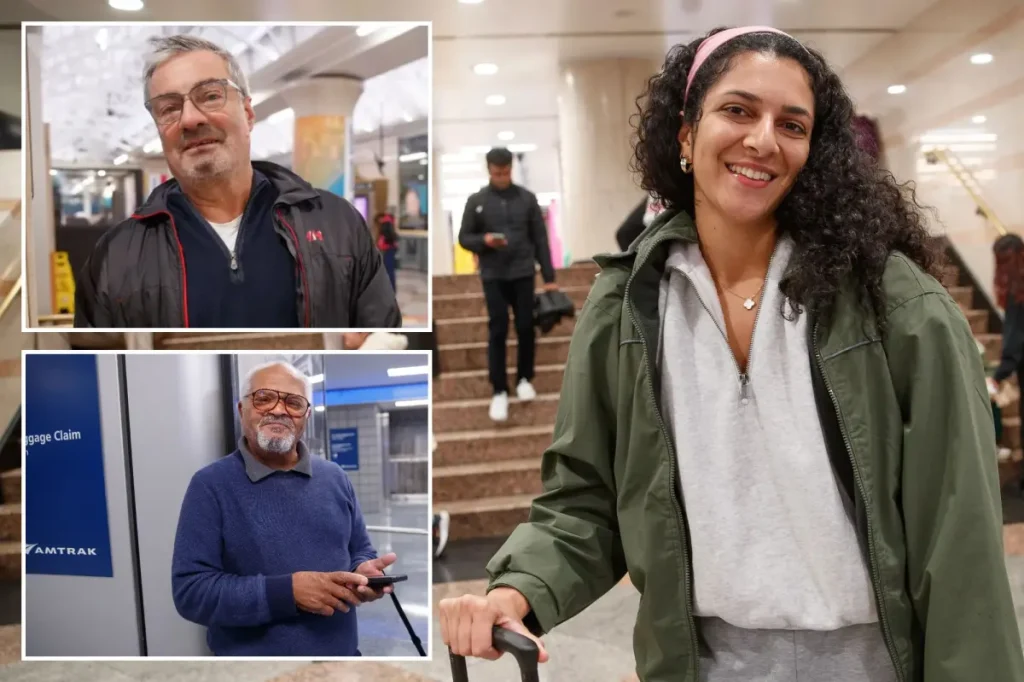The Unexpected Showdown: New York vs. New Jersey in America’s Friendliest State Rankings
In a surprising twist that has locals raising eyebrows and defending their home turfs, a recent study by travel site Journeyscape crowned Hawaii as America’s friendliest state—a finding few would contest. However, what really stirred the pot was New Jersey claiming second place, while New York followed closely in third. This unexpected ranking has ignited a friendly rivalry between the neighboring states, prompting residents from both sides of the Hudson River to weigh in on this contentious conclusion. The study’s methodology combined analysis of Reddit posts, international visitor statistics, LGBTQ+ equality measures, and “happiness” scores from WalletHub, creating what some locals view as a debatable metric for measuring something as subjective as friendliness.
The revelation sparked immediate reactions from New Yorkers and New Jerseyans alike. Keith Toliver, a 74-year-old lifelong New Yorker passing through Penn Station, didn’t mince words when he stated with a smile, “I’ve never met anyone nice from New Jersey.” His sentiment reflects the traditional rivalry between the two states, one that has persisted for generations. Meanwhile, Michael Claps, a 63-year-old New Jersey commuter who previously lived in New York, expressed genuine shock at the rankings. “New York gets a bad rap,” he remarked, defending his former home state. “It’s really third? That’s shocking.” Despite now living across the river, Claps remained loyal to New York’s reputation, asserting, “I think New York people are super friendly,” before adding with a laugh, “the ones I know, at least.” These contradictory perspectives highlight the deeply personal nature of determining what makes a place “friendly” and how strongly regional identity influences these perceptions.
Those who have experienced life in both states offered more nuanced perspectives on the friendly-versus-unfriendly debate. Devika Kumar, a 27-year-old who grew up in New Jersey but now calls New York City home, believes her current residence is “just as nice” as her home state. “It has a bad reputation, but people are really, really kind,” she explained, challenging the stereotype of the rude New Yorker. Kumar suggests there’s a distinction between approachability and actual kindness, noting, “We can have an abrasive front, I think, and come across a little bit hard to approach, but we’re actually nice people in the world.” This insight gets to the heart of what might be happening in these rankings—the difference between surface-level interactions and deeper expressions of community support and kindness that aren’t immediately apparent to casual observers or visitors.
Former New Yorker Dylan Layman, visiting from Montana, offered another interesting perspective, suggesting that both New York and New Jersey have been unfairly characterized for decades. At 31 years old, he believes it’s “outdated” to consider either state particularly rude. Layman proposed an intriguing theory about why city dwellers might actually be friendlier than their reputations suggest: “I think it helps that they see more people in a day. The more people you see in a day, the more chances you have to be friendly.” This counterintuitive idea challenges the assumption that urban anonymity breeds coldness, instead suggesting that increased human interaction creates more opportunities for positive exchanges. Laura, a 60-year-old New Jersey native, reinforced this point with her observation that in New York, “If you’re walking down the street and you smile at someone, they’re gonna smile back,” though she did concede that New York is “probably a little tougher” than her home state.
One of the most insightful comparisons came from San Francisco resident Shafeeq Ibraheem, who was visiting the East Coast. The 29-year-old shared his surprise at how helpful New Yorkers had been during his trip, even assisting him with carrying luggage through the subway—an experience that contradicts the stereotype of indifferent city dwellers. Ibraheem distilled the difference between his home state and New York with a particularly astute observation: “California is nice but not kind, and New York is kind but not nice.” This distinction between surface pleasantries and meaningful assistance cuts to the heart of how we might misinterpret friendliness based on first impressions or communication styles, rather than actions and willingness to help others in need.
In the end, perhaps New Jersey resident Andrew Fernandez offered the most level-headed assessment of the friendly state debate. “I’ve been around in different parts of Jersey, and you’re going to meet a lot of different people that are more friendly than they are in different areas,” he explained, adding, “And sometimes when you travel to different parts of New York, you’ll meet some rude people.” This pragmatic view acknowledges the simple truth that friendliness varies widely within states, neighborhoods, and even city blocks—rendering broad state-by-state comparisons somewhat meaningless. While Hawaii topped the Journeyscape rankings (with New Jersey, New York, California, and Nevada rounding out the top five), the animated responses from residents suggest that friendliness remains deeply subjective and context-dependent. Perhaps the true measure of a place’s character isn’t found in rankings but in the countless daily interactions that define community life—something no study can fully capture.


